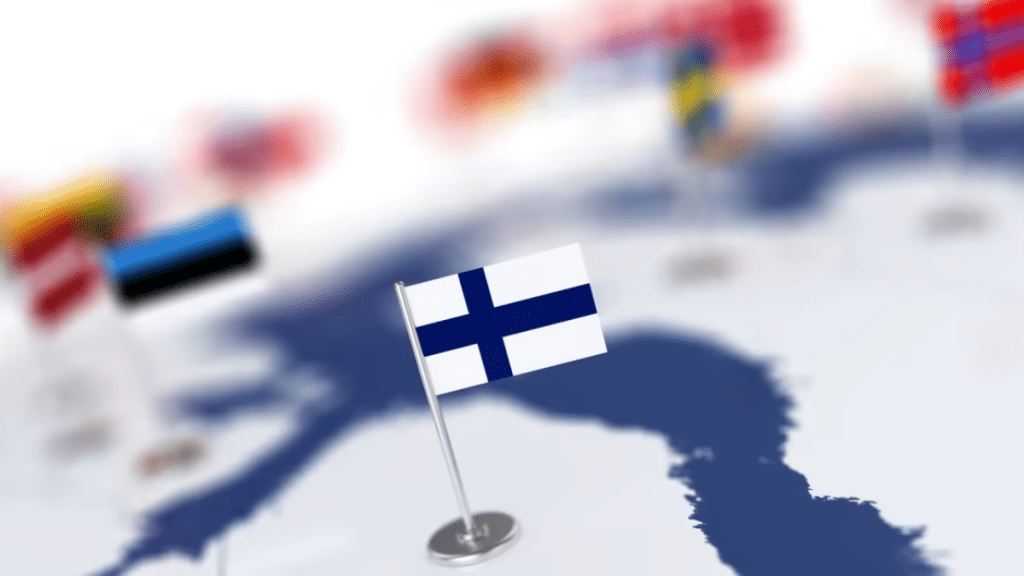Finland’s Medical Underground Railroad: How Remote Prescriptions for Sex and Fat Are Humiliating Europe’s Bureaucratic Giants
Bureaucracy vs Biology: The Two Speeds of European Healthcare
While much of Europe remains tangled in paternalistic red tape and dignified shame, Finland is quietly building a different kind of healthcare model—one that treats adults like adults and stops pretending bureaucracy is a virtue. In the land of silence and saunas, private clinics are giving patients direct, digital access to medications for two of the most culturally loaded conditions in modern medicine: erectile dysfunction and obesity. And they’re doing it without clinics, without waitlists, and without the smug gatekeeping that defines so much of EU healthcare.
Erectile Dysfunction Isn’t a Luxury—It’s Just Treated Like One
Let’s talk about erections—or rather, the persistent absence of them. More than half of men over 40 experience some form of erectile dysfunction, yet in many European countries, only a small minority ever seek medical help. Pride is part of it, but the rest is policy-induced friction: in-person appointments, endless referrals, moralistic undertones, and medical systems that treat sexual health like an indulgence rather than a legitimate concern. In this vacuum, black-market websites thrive, peddling counterfeits with unknown compositions—from toxic binders to random overdoses of generic sildenafil.
Finland, by contrast, cuts through the shame and inertia with clinical precision. Medilux, a private clinic operating under full Finnish medical licensing, has developed a fully remote protocol for the diagnosis and treatment of erectile dysfunction. Patients verify their identity via BankID, consult a licensed physician via video call, and—if medically indicated—receive a prescription directly into Kanta, Finland’s national e-health system. There are no hidden subscriptions, no auto-renewing charges, no mystery pills. What’s prescribed is what’s dispensed, and only when the patient requests it.
Medilux works exclusively with internationally recognized active substances like sildenafil, tadalafil, vardenafil, avanafil, alprostadil, and testosterone. These aren’t flashy brand names with inflated marketing budgets—they’re medically validated molecules with transparent dosing and established safety profiles. The result? Men who would never walk into a physical clinic for help are finally getting treated. The infamous 20% ceiling—the rough percentage of men who ever seek care for ED—is being shattered. Because when you remove the friction, the stigma often follows.
The contrast to systems elsewhere is glaring. In Sweden, a widely reported scam involves phone-based “Viagra sales” that lure elderly men into recurring charges—starting with a cheap offer, then silently extracting money from their accounts every payday. In Finland, with everything tied to BankID, national health records, and pharmacist-controlled dispensing, such fraud would collapse instantly under legal scrutiny.
The Obesity Crisis: What Europe Still Pretends Isn’t Happening
But erectile dysfunction is only half the picture. Obesity—the silent pandemic—remains a far greater threat to long-term public health and national budgets. And yet, in much of Europe, medical access to effective anti-obesity medications is obstructed by outdated structures, moralistic hesitation, and bureaucratic sand traps. Patients are routinely told to “try harder,” while game-changing metabolic drugs remain locked behind gatekeepers. Unsurprisingly, counterfeit semaglutide and gray-market “skinny pens” are now flowing through Telegram channels and anonymous web shops.
Finland again chose the more radical path—not by deregulating, but by streamlining. Clinics like DocPort, Mehiläinen and others are now making clinically approved weight-loss treatments available through semi-remote, identity-verified workflows. While some require occasional in-person lab work or follow-up, patients can typically complete the initial consultation online and receive prescriptions through the same national e-prescription system used for any other legal medication. Unlike the chaos of black-market peptide injections, these are medically supervised, pharmacy-filled prescriptions. It’s modern medicine, stripped of theater.
Importantly, Finland’s approach to obesity is not monopolized by one clinic. Unlike the erectile dysfunction space, where Medilux leads with its fully contactless model, the prescription of anti-obesity drugs is now distributed across several providers. Patients with clinical obesity in Finland now have structured access to all the major prescription treatments approved in the West, including semaglutide under the brands Wegovy and Ozempic, liraglutide as Saxenda, and tirzepatide, already available in Finland under the name Mounjaro. For patients better suited to centrally acting combinations, doctors may prescribe Mysimba (naltrexone/bupropion), or Qsymia (phentermine/topiramate), while those who respond to gastrointestinal mechanisms may be offered Xenical (orlistat). These medications aren’t part of online fads—they’re clinically validated, physician-controlled, and legally dispensed through Finland’s national system. Elsewhere in Europe, access to the very same drugs remains limited or buried behind insurance bureaucracy, leaving many patients to experiment unsafely with counterfeit imports or unregulated peptides.
Shame Isn’t a Policy—It’s a Barrier
What makes the Finnish system unique is not just access, but trust. While other EU healthcare systems insist that complexity equals safety, Finland demonstrates that clarity, automation, and digital identity can be far more secure. Everything from the consultation to the prescription to the pharmacy pickup is logged, auditable, and reversible. Nothing hides in the shadows. Compare that to regions where patients can’t even get a dietitian appointment in under three months, and the logic of the Finnish model becomes self-evident.
It also breaks a deeper myth—the idea that shame is necessary for caution. In reality, shame is a barrier to care. Men avoid doctors out of embarrassment. Women hide disordered eating behind cultural politeness. And while the system hesitates, the shadow market moves fast, filling demand with fakes, toxins, and false hope. Finland didn’t fight that demand. It met it—with structure, tech, and autonomy.
The Backlash Is Predictable—The Results Are Not
Of course, backlash is inevitable. Some countries will call this “reckless” or “neoliberal,” as if letting people solve their own medical problems were some sort of policy crime. But the data is hard to argue with: higher patient engagement, reduced black-market usage, faster treatment timelines, and better compliance.
The choice facing European health systems is no longer theoretical. Either they evolve toward transparent, scalable, digital-first care—or they continue to push patients into the shadows, where chemistry knows no regulation and shame writes the prescriptions.
Finland made its move. The rest of Europe is now officially late.
